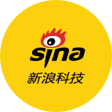Compile/Cloud
Focus:
1. Previously, it was reported that Ruixing Coffee was studying NASDAQ The plan of re listing may be carried out at the end of this year as soon as possible; Ruixing denied the rumor.
2. The company is currently on the verge of ending the bankruptcy proceedings in the United States, which is also a key step in its "re listing".
3. For Ruixing's re listing plan, the crucial factor is whether investors will again believe the statements provided by the company, especially considering the fact that the original auditor Ernst&Young failed to identify the previous false statements.
With the help of the east wind of Ailing, the top stream valley of the Winter Olympics, Ruixing Coffee, once thought to be in a dead end, seems to be really about to make a comeback.
Since its establishment in 2017, this company has begun to spread rapidly in China, which has become a potential Starbucks Local brands that pose a great threat. Just two years after its establishment, Ruixing was listed on NASDAQ, with a market value of 13 billion US dollars. A large number of investors were attracted by the prospect of rapidly developing Chinese consumer demand. Ruixing Coffee has also become a symbol of the vitality of Chinese capital.
In 2019, when the company was listed in the United States, more than $20 million of shares changed hands every day in over-the-counter trading. The rapid growth story that global investors initially bought seemed to be confirmed, and it also successfully attracted investors' interest.
However, in 2020, the company was exposed to cheating investors by forging sales performance of more than 300 million dollars, and then the company was forced to delist, and paid 180 million dollars to solve the charges against it initiated by the Securities and Exchange Commission (SEC).
The scandal has deeply hurt BlackRock And GIC and other investors, and provided the latest example that four major audit institutions failed to find the loopholes in corporate accounts. Ruixing's auditor is Ernst&Young.
Two years after the scandal, Ruixing hopes that investors and US regulators can forget the whole event. According to reports, the source said that the Chinese coffee chain was trying to revive. Their plans included raising new capital, meeting with investors, and planning to re list in the United States with shareholders. However, the company later denied the rumors of re listing.
According to a senior manager, Ruixing is now taking a "more willing attitude to re contact with public investors". The manager also said that the company hopes to "regain the trust of investors".
Ruixing said that they have opened a new chapter for themselves. In July 2020 (two months after the company was delisted), Guo Jingyi, who took over as CEO of the company, said: "In the past two years, everything about Ruixing has changed except the name, including the way of business development, operation, team, corporate culture, etc. These are the reasons for financial problems in the past."
Although it was delisted, Ruixing believed that its development momentum was good. According to the company's latest earnings report, its revenue more than doubled year-on-year in the third quarter of 2021, reaching 2.3502 billion yuan. According to the report, Ruixing has opened 5671 stores in China, more than 500 more than Starbucks. Recently, Guo Jingyi, chairman and CEO of Ruixing Coffee, also said in an internal letter that in January 2022, Ruixing will open about 360 new stores, breaking the record of Ruixing's total number of stores opened in a single month. In addition, since its stock value lost 90% in 2020, the company's market value has rebounded to more than $3 billion.
In response, John Zolidis, president of Quo Vadis Capital, a New York stock research company, said: "The question now is whether the company's previous fraud has hidden a business with permanent defects, or whether they are legitimate businesses with long-term viability."
However, some investors still have expectations for Ruixing's re listing. After all, Ruixing's consumption growth is one of the most attractive stories in the world, which has great temptation for investors.
A senior corporate analyst from Hong Kong, China, said: "Everyone thinks it will sink, but it is like a phoenix in the fire. If the company goes public again, it will have various impacts on investors."
Rapid expansion
Ruixing Coffee was founded by entrepreneur Lu Zhengyao in Xiamen, and then expanded nationwide at a very fast speed.
Lu Zhengyao later invited his former colleague Qian Zhiya from UCAR, which also experienced similar explosive growth in its early years. After joining Ruixing, Qian Zhiya began to serve as CEO. On the eve of Ruixing's listing, Forbes estimated that Lu Zhengyao's net assets were $2.3 billion.
Ruixing's aggressive expansion strategy is the root of its fraud. Ruixing's means of expansion is to spread coupons, seize the market share of new customers with low-priced drinks, and then raise the net selling price to cover up its losses. An insider of Ruixing said when talking about the period before listing and subsequent issuance: "The company was burning money quickly at that time."
The US short seller Muddy Waters emphasized this point in an 89 page report first released in January 2020. The report accused Ruixing of exaggerating sales and poor corporate governance, which is a "fundamental collapse" enterprise. An undercover research institution sent more than 1000 researchers to Ruixing's coffee store to monitor customer flow and coffee sales, and found that there were discrepancies with the reported figures.

Since then, Lu Zhengyao and Qian Zhiya have left the company one after another, and neither of them has responded to the request for comment. In May 2020, Lu Zhengyao wrote on his WeChat public account: "I have always been on the front line of the industry. My style may be too radical and the enterprise runs too fast, which also leads to many problems. But I am not going to cheat investors with the concept. I really want to make the enterprise bigger and better, and create value for the society! Whenever I see people holding small blue cups in their hands, I feel proud. "
Now two years have passed, Ruixing said that the situation has changed. An executive of Ruixing said that the company's internal control has been improved by employing personnel from four major accounting firms to conduct internal inspection and report directly to the audit committee. Corporate governance experts also said that this is a crucial step for any company that intends to attract new international investors.
Li Hui is the key figure of Ruixing's turning point. His $2 billion private equity fund, Zhengzheng Capital, is one of Ruixing's earliest and largest financial supporters. Before the scandal, Zhengzheng Capital sold shares worth $232 million, but then bought a large number of Ruixing shares at a lower price. Last month, it became the controlling shareholder of Ruixing after acquiring the shares held by the former co-founder of Ruixing.
A person close to Li Hui said that Li Hui has been "cleaning up the company" for a long time. The insider also added that Li Hui "sent a team to stay in the company for several months and formulated a turnover strategy".
Ruixing used the cash investment from Dazheng Capital to pay for shareholder litigation, and repay the matured debt of some bonds and overseas restructuring costs. The company is currently on the verge of ending the bankruptcy proceedings in the United States, which is also a key step in its "re listing".
As a result of the bankruptcy proceedings, the hedge fund that purchased its convertible bonds of about $420 million in January 2020 will receive a return of about 96 cents. An external consultant involved in the restructuring process said: "Just one and a half years later, they almost recovered all their funds, plus some new bonds, cash and stocks."
The consultant also said: "In just 18 months, it has brought such high returns to creditors, solved legal and regulatory issues, and improved business performance. I have never seen a similar case."
Li Hui and Guo Jingyi's strategies include closing stores with poor performance and increasing the price of coffee by 60%. After the price increase, the average price of single products of Ruixing is still only about half of the price of Starbucks and other single products. Ruixing also claimed that it has reduced property and staff costs by using the "in app" purchase system, and has begun to expand the number of its stores through franchisees, rather than directly owning and managing all stores.
 Source/Financial times sorting/Sina Technology
Source/Financial times sorting/Sina Technology In addition, Ruixing also launched some popular products, such as raw coconut lattes, which were popular last summer. Xu Xueqiong, 36, a small business owner from Anqing, Anhui Province, is a fan of raw coconut lattes. She said that Ruixing's brand positioning, coupons and sweet taste are "suitable for Chinese consumption habits".
Michael Norris, senior research analyst of Agency China, a consultancy, said that Guo Jinyi has begun to use his franchisee partners to share the risks of opening new stores, especially in the sinking market. This strategy has paid off. The company's Q3 financial report shows that the revenue of these stores has tripled.
However, some analysts warned that the FMCG market is changing, and Ruixing's competitors are also emerging, such as Manner Coffee, which is expanding rapidly from Shanghai. Norris added that investors may continue to be suspicious of the report of Ruixing's accelerated growth. Some analysts teased and said: "The sharp rise in revenue is something that those of us who have been following Ruixing have seen before." Ruixing's net loss in fiscal year 2020 was $859 million, and its financial statements showed that its net loss narrowed to $3.6 million in the first nine months of 2021.
Carson Block, founder and head of Muddy Waters, expressed surprise at Ruixing's change. He said: "In the past, once a company was identified as a liar, it was doomed, especially to the extent of Ruixing. But Ruixing seems to have got rid of the influence. Although there has been a history of fraud before, they have successfully raised funds again and are using them in business operations."
Win back trust
For Ruixing, it may be more difficult to persuade foreign investors and regulators to believe its financial statements again than to invent the birth coconut latte.
To relist on NASDAQ, Ruixing first needs to formally end the bankruptcy proceedings. According to a source involved in the program, the program should end in the next few weeks.
Subsequently, the company needs to re register with the SEC before applying to NASDAQ. If the exchange believes that investors may face risks, it can refuse the listing request of enterprises. But generally speaking, they will accept those enterprises that meet the requirements of the exchange.
But an accounting expert said: "If Ruixing is re listed and traded, even if you buy their shares, you don't know whether or where you can sell them in two or three years. Considering this, how much discount does Ruixing need to offer to attract investors?"
For Ruixing's re listing plan, the crucial factor is whether investors will again believe the statements provided by the company, especially considering the fact that the original auditor Ernst&Young failed to identify the previous false statements. In addition, another thing that worried investors was that Reinout Schakel, the CFO of the company at the time of the scandal, was still in office.
After the fraud scandal was exposed, Ruixing has changed two audit institutions. In April 2021, the Group hired Zhongzhengda, a Hong Kong accounting firm, as its auditor. Previously, its former auditor, Marcum Bernstein&Pinchuk of New York, was replaced. Marcum said at that time that they "did not collect enough independent third-party data, nor did they conduct enough audit procedures to complete the audit".
As American regulators and exchanges pay more attention to the audit quality of Chinese companies, the operation of small enterprises may be subject to more rigorous review.
Zhongzhengda has about 40 accountants in Hong Kong, China and the United States. The institution is registered with the US audit regulator, which enables it to audit the accounts of Chinese companies listed in the United States. But so far, it has only audited a few such companies that trade on NASDAQ or over the counter. Zhengda did not respond to the request for comment.
In the audit of Ruixing's 2020 accounts, Zhengda identified Ruixing's lack of "control policies and procedures at the entity level, including its failure to demonstrate its commitment to integrity and moral values" as a "major shortcoming". The agency also said that Ruixing lacked proper division of responsibilities, including investment decision-making and capital use.
According to the fund manager, even so, because Ruixing has excellent growth prospects, some investors may be attracted by Ruixing's relisted shares. A fund manager who has traded Ruixing OTC stocks said: "In terms of the value of a single store, it is a low-cost and attractive asset. This means that people will not give up this stock because of fraud, for example."
So far, however, most of the people interested in Ruixing stock are China focused hedge funds and capital from mainland China. The fund manager said: "It is hard to see institutions like Fidelity buying shares of Ruixing again on the first day of its re listing."
Winning back the support of large international investors is crucial to Ruixing's comeback. Kerri Waring, CEO of the International Corporate Governance Network, a lobbying group of institutional investors whose members manage $59 million of global assets, said, "I suspect there is still work to be done before this.".
She added: "For investors and regulators, their focus will be on the integrity of financial disclosure and the credibility of future figures. The new external auditor will also become the focus of external attention."
When investors pondered whether they could believe Ruixing's return, a former American supervisor said that the company was subject to such strict scrutiny, which meant it was unlikely to repeat its past crimes. He said: "Sometimes the cleanest place is a place that has just reopened after being closed by the health department."





















